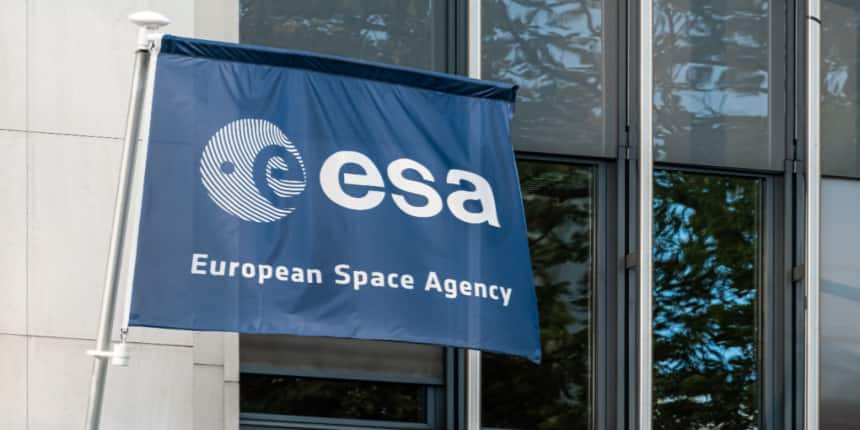ESA Full Form
What is the full form of ESA?
ESA stands for European Space Agency. It is a European Agency in the space technology sector. Its goal is to influence the growth of Europe's space capabilities and make sure that global and European people continue to benefit from investments in space. 22 countries make it to the international organization known as ESA. It may carry out projects and activities that are far larger than those of any one European nation by coordinating the financial and intellectual resources of its members.
- What is the full form of ESA?
- ESA: European Space Agency
- History of ESA
- Activities And Programs

ESA: European Space Agency
In 1975, by the combination of ELDO (European Launcher Development Organization ) and ESRO (European Space Research Organization ), ESA was formed. Its headquarter is situated in Paris and branches in many different countries. It seeks to influence the growth of Europe's space capacity and guarantee that investments in space programmes benefit both the people of Europe and the rest of the globe. Additionally, it serves as a hub for European civil space operations and makes significant contributions to the construction of the international space station.
It also has a number of satellite programmes that are intended to examine Earth and other worlds. Mars Express, a spacecraft circling the Red Planet, and Rosetta, a space probe that touched down at Comet 67P/Churyumov-Gerasimenko in 2014, are two of its significant missions.
History of ESA
Europe indicated a need for a space programme after the Second World War. In the end, two senior European scientists, Pierre Auger and Edoardo Amaldi suggested creating a CERN-like entity by merging European governments in 1958. In order to develop launchers for the ELDO and produce spacecraft for the ESRO, nations established a framework in 1964.
Approximately 10 years after the union of ELDO with ESRO and the contributions of its ten founding member states, the European Space Agency was established in 1975. The first satellite mission intended to study gamma radiation in orbit was Cos-B. The essential criteria under which ESA establishes the European Space Programmes are provided by the Board of Governors of ESA. ESA is run by a Director-General who is chosen by the Council and serves a five-year term.
Activities And Programs
As per its official website, its activities are:
Human spaceflight
Launchers
Navigation
Observing the Earth
Operations
Preparing for future
Space Engineering and technology
Space for Climate
Space Science
Telecommunications and integrated applications
Some programs are:
Copernicus programme
Cosmic Vision
ExiMars
FAST20XX
Galileo
Horizon 2000
Living Planet Programme
Spanish Trainees
Terrae Novae Programme
Frequently Asked Questions (FAQs)
Annual budget is 7.2 Billion Euros.
All of the ESA's Member States make financial contributions to the Agency, which are based on each nation's gross national product and used to pay for the Agency's necessary functions (space scientific programmes and the general budget). ESA also runs a variety of additional optional programmes. Each Member State chooses the optional programme in which they want to take part and the amount they want to pay.
Europeans invest extremely little per person in space. Every inhabitant of an ESA Member State contributes roughly the same amount in taxes for space-related spending as a movie ticket on average.
The Council, which serves as ESA's governing body, establishes the fundamental political principles under which ESA conducts the European space programme. No matter how large or how much it contributes financially, every Member State is represented on the Council and has one vote.
The idea was proposed by two European scientists, Pierre Auger and Edoardo Amaldi.